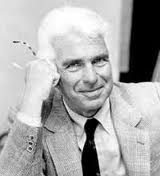Has it ever happened to you that you met someone, looked at them, spoke for about five minutes....and got this unmistakable feeling – ‘this person is sorted out’. Doesn’t it seem like such a coveted place to be – the sorted out zone? These people are completely tantalizing for me. So much better than being muddled in our heads and confused about our deepest values and desires? Which in turn makes us drift with the next popular wave, only to be washed ashore a bit more overwhelmed than when we began.
I’ve met a few seriously sorted out people. They know what they are about, their best strengths and worst fears. They know where they are going in life and when they are lost. They are their best judge, and criticism and praise are taken in their stride. They also know when they don't know! And I can generally be found staring up at them wondering how did that person become so poised, so genuinely comfortable with themselves, quietly secure, disarmingly real, and unbelievably good, deep down. For me, these are the elements of being ‘sorted out’; people who have found themselves and know what they are doing with this awareness of who they are!
I have gone ahead boldly and quizzed some of them on how they achieved this rare feat of human behavior? What stops them from getting lured into the temptations of our commonplace and wretched behavior, petty thoughts, wicked mischief, and lopsided judgments? How come they discovered what confounds many?
Here are some themes that seem common.
Solitude: To listen, one needs to stop talking. All sorted out people have had the opportunity to be alone and invest in deep thinking. You will agree that not everyone left to their own devices promptly launches into a project of self-discovery. I agree, and that will be my second point. For now, let me speak more about solitude. Two important things happen the moment we are alone. For one, we get away from the unnerving scrutiny of others and two, the incessant noise of humanity ceases. Being alone with our self creates ripples of thoughts that take us to brand new parts of our own mind. The more time we spend exploring our mind, the greater the depth of our self-awareness.
Values: A beacon is the light on top of a lighthouse that shows the way to approaching ships in the darkness. In the same spirit, our values show us the way when we are at sea in life. Being alone can quickly turn into a wasted opportunity. Values help us stay on course. They are the messengers of our guidance system that tells us which way to go. To ask meaningful questions of ourselves is the quiet work of our value system. What questions to ask is aided by the next point.
Judgment: Sorted out people have an enviable eye for the finer points of life. They are able to – with the help of solitude and their values – find meaningful thoughts to ponder upon. The rights and wrongs of life intrigue them. They show keen interest in the human condition around them, and try and ask tough questions of themselves. For example, if there was only one person who could be rescued from a sinking boat, what would they do? Their answers help explore their own rights and wrongs, and logic of life and living. They are curious to push the limits of their thinking and decision making. They find answers to tough questions.
Courage: Not everyone who finds solitude, professes values, and has good judgment necessarily puts any of these to good use. Very importantly, we also need the fortitude to overlook our limitations and step over the line of control. Sorted out people have the courage to do uncomfortable and tough things in life. For example, not hesitating to overcome a fear they have. If they are scared of water, they go right ahead and learn to swim. This personal victory creates massive inroads into their own mind and its capacity to expand and perform well. They test their limits, by pushing themselves to excellence.
Excellence: They root for excellence, because mediocrity is the domain of the confused and less courageous. Those who want to find themselves set high standards at work and in life. They set targets that stretch them and release their limitations. Often, the word 'perfectionism' can be heard around sorted out people. They pay attention to detail and take genuine pride in doing a good job of things.
Compassion: Sorted out people have compassion for the ‘unsorted’ amongst us. On a more serious note; they look at others with intent to try and understand them rather than be understood first. They naturally gravitate towards the good in others and the good in our world than spend time finding faults with either. There is deep goodness in sorted out people. And this last, but certainly not the least of their qualities, differentiates them from everyone else. To exhibit our intelligence is easy, to be clear in our minds is not too hard, but to be genuinely good people is tough for most of us.
Over this weekend, my special task is to enter the kingdom of ‘sortedness’ and courageously explore parts of my mind I have not yet confronted.










